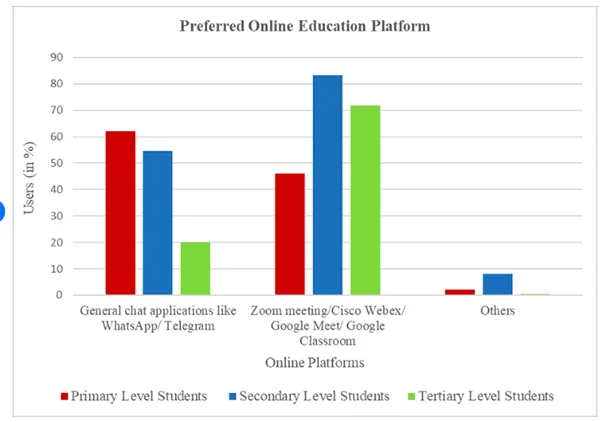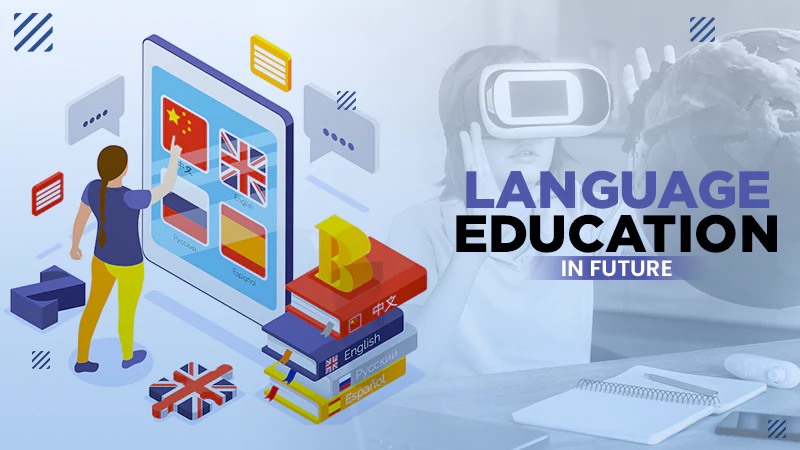
The vast digital expanse can be a student’s greatest ally or a colossal time sink. For many, navigating online resources effectively means the difference between taking an exam and getting lost in the world of memes and cat videos. Moreover, there are webinars linking the gap in education and reaching to the larger audience.
Fortunately, mastering the art of using the internet for academic success is easier than you might think. Here are ten actionable tips and life hacks that can transform how you approach your studies virtually.
The History of Using the Internet for Education
The inception of the internet in the late 20th century transformed many sectors, and education was no exception. Before the digital revolution, distance learning primarily used methods like postal correspondence, which often proved to be slow and limited in its reach.
However, with the birth of the World Wide Web in the 1990s, the potential for educational platforms expanded drastically. Early computer users mainly comprised research institutions and universities.
They recognized its potential and started to offer online courses, giving birth to the concept of e-learning. This enabled students from remote locations to access otherwise unreachable courses, breaking down traditional geographic barriers.
Students like that can also use the computer to get academic help remotely. Learners worldwide can search the web for “Can I pay someone to do my paper?” and get dozens of options. Expert writers can tutor busy learners to perform better and get awesome results.
DO YOU KNOW
The Vocational Education Act was introduced in the U.S. in 1963 enabling technology in schools to learn programming languages like BASIC and PCs.
Growth and Expansion in the 2000s
As the new millennium dawned, the internet became more accessible to the masses, leading to an explosion of online educational resources. The 2000s saw the launch of platforms like Khan Academy, Coursera, and edX.
These platforms provided a mix of free and paid courses from universities and institutions across the globe. In addition, the rise of multimedia content, including videos and interactive simulations, enhanced the e-learning experience.
Forums and chat rooms became common features, allowing students and educators to interact, ask questions, and engage in discussions, mimicking a classroom environment virtually.
Modern-Day Internet Education
Today, the use of virtual education has become universally significant. From primary schools introducing learners to basics using apps and online games to universities offering entire degree programs digitally, the internet has revolutionized how knowledge is imparted.
During unforeseen challenges, such as the COVID-19 pandemic, the internet proved invaluable, ensuring that education could continue remotely when physical classrooms became inaccessible.
As technology continues to advance, the reliance on digital education is only set to increase, with innovations like virtual reality and augmented reality hinting at the future of online learning.
How the Internet Can Help With Your Studies
Leverage Academic Search Engines
Avoid relying solely on general search engines like Google. Websites such as Google Scholar, JSTOR, and ResearchGate house a goldmine of scholarly articles and studies that can provide reliable information for your college work.
Bookmark and Organize
It’s not enough to find good resources; you need to keep track of them. Tools like Pocket or Evernote can be instrumental in saving web pages and organizing them effectively. Create categories or tags specific to different subjects or assignments to streamline your revision process.
Harness Online Study Groups
Connecting with fellow students or researchers can benefit your learning journey. Platforms like Study With Me or Discord servers dedicated to specific university subjects can foster collaboration, answer doubts, and provide different perspectives on a topic.
Embrace Digital Flashcards
Traditional flashcards have long been a favorite studying aid, but their virtual counterparts offer greater versatility. Apps like Quizlet or Anki allow learners to create custom flashcards that can be accessed anywhere and offer spaced repetition techniques for better retention.
Use Online Summarization Tools
If you’re strapped for time, online tools like SMMRY or SummarizeThis can condense lengthy articles into shorter versions, capturing the essence of the content. While they’re no replacement for thorough reading, they can be useful for quick overviews.
Avoid Multitasking
Contrary to popular belief, multitasking can hamper productivity. When researching online, resist the urge to check social media or watch videos simultaneously. If self-control is an issue, apps like Cold Turkey or Forest can block distracting sites, ensuring you remain focused.
Engage with Educational Platforms
Websites like Khan Academy, Coursera, or edX offer courses on various subjects. Complete with assessments and interactive elements, their structured format can complement traditional learning methods.
Stay Safe and Cite the Right
Plagiarism is a grave academic offense that shouldn’t be ignored or taken lightly. Tools like Turnitin or Grammarly ensure your work is original and accurate. Similarly, citation tools such as Zotero or Citeulike can assist in correctly referencing digital resources.
Utilize Productivity Extensions
Your browser can be a powerful ally in your scholarly endeavors. Extensions like StayFocusd (for Chrome) or LeechBlock (for Firefox) can limit time spent on distracting websites. Others, like OneTab, manage and reduce tab clutter, optimizing your browser’s performance.
Regularly Update Your Knowledge
The virtual world is continuously progressing in every sector and industry including education. Regularly check informative blogs, join virtual seminars, or participate in webinars. Websites like Eventbrite often list free high-quality educational events that can enhance your knowledge and introduce you to the latest trends in your subject.
The graph below shows that the preference for online education has increased for primary, and secondary level students.

Other Ways to Ace Your Studies
Traditional Study Methods
Before the advent of the internet, students relied heavily on traditional learning methods that have been time-tested and proven effective. One such method is the use of flashcards.
These cards, with questions on one side and answers on the other, have been a staple for learners for generations. They help in memory retention and quick recall, making them invaluable for subjects that require memorization.
Moreover, group tutoring sessions, where learners gather to discuss and explain topics to one another, can also be immensely beneficial. This method allows for collaborative learning and reinforces concepts as one teaches peers.
The Power of Books and Libraries
Despite the technological age we live in, books remain an irreplaceable resource. Libraries, with their vast collections of textbooks, reference books, and journals, offer a wealth of information that can complement and sometimes surpass virtual resources.
When writing essays or research papers, multiple book references can give a student’s work depth.
Moreover, the quiet environment of a library can provide a focused atmosphere, free from the common distractions at home, making it an ideal place for deep study and concentration.
Holistic Approaches to Learning
Beyond traditional studying methods, holistic approaches to learning can also help learners ace their studies. This includes methods like mind mapping, where scholars visually represent information, to see the connections between ideas more clearly.
Engaging in physical activity, like short walks or stretches between reading sessions, can refresh the mind and enhance cognitive functions. Meditation and deep breathing exercises help learners stay calm and focused, especially during stressful exam periods.
These holistic methods support educational performance and contribute to overall well-being, ensuring pupils are mentally and physically prepared to tackle their studies.
In Conclusion
If harnessed correctly, the internet holds immense potential to bolster academic success. The online world is replete with opportunities, from picking credible sources to joining illuminating discussions.
And as technology continues to progress, integrating the right digital tools into one’s study routine can undeniably provide an edge in the academic arena.







